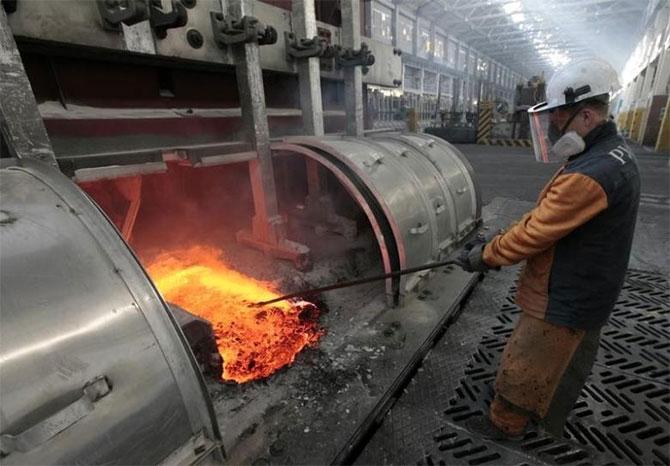In the first two months of the current fiscal, Indian exports of finished steel reportedly grew by almost 76 per cent on a YoY basis and China alone accounted for close to 60 per cent of the increase.

In April and May, while India was under curbs to contain the COVID-19 pandemic, China emerged as the most important export destination for steel companies, accounting for about 48 per cent of total steel exports.
According to Joint Plant Committee (JPC) data, finished steel exports to China during April 1, 2020 and May 31,2020, stood at 440,000 tonnes while semis was at 1 million tonnes; total finished steel exports during the same time was at 1.7 million tonnes and semis at 1.3 million tonnes.
While in finished steel exports, volumes to Vietnam were higher, China accounted for the lion's share of semis.
Icra senior vice president, Jayanta Roy, said, that in the first two months of the current fiscal, Indian exports of finished steel reportedly grew by almost 76 per cent on a YoY basis.
"China alone accounted for close to 60 per cent of the increase, importing 440,000 tonnes of steel from India this year so far compared to negligible levels in the previous year.
"Overall steel exports grew at a faster pace of 129 per cent YoY in April and May this year because of a near three-fold increase in the export of semis," he added.
As domestic demand in India crashed, primary and secondary steel producers in the public sector and private sector resorted to exports.
Jayant Acharya, director-commercial & marketing, JSW Steel, said, exports of products to China have been more in semis and hot rolled coils.
"Exports of semis would be both from primary producers and secondary producers. Our export proportion to China is not that high," he added.
Tata Steel managing director and chief executive officer, T V Narendran, explained that companies were exporting to China because demand was strong.
"China is finding it better to import steel than import iron ore and coal at today's prices," he said.
China is one of the biggest iron ore importing countries. Iron ore prices, which were about $83 a tonne in end-March, are currently at around $103 a tonne.
Prices of coking coal, the other major input, have however, dropped during the same period $146 a tonne to $114 a tonne.
Sushim Banerjee, director general, Institute for Steel Development and Growth (INSDAG), pointed out that domestic steel prices in China had increased significantly.
The difference with imports, for hot rolled coil, was almost about $70 a tonne.
On the other hand, there was demand led by government spending on infrastructure.
Still, industry officials believe that this was unlikely to last and Indian companies should look for alternative markets.
Roy said that sustainability of such growth rate in exports was doubtful as China ramps up its own production.
A weak demand outlook in other parts of the world would also pose challenges to Indian steel mills, he added.
China produced 92.3 million tonnes of crude steel in May 2020, an increase of 4.2 per cent compared to May 2019, even as most countries reported a decrease.
Steel companies, however, said that with domestic demand picking up gradually, the overall share of exports would be coming down.
Narendran said, for Tata Steel, exports was coming down and would be 30-35 per cent of sales from next month.
Acharya also said, exports had been increased strategically during the lockdown period during which domestic demand was affected.
"Overall reliance on exports will be going down in the next months with domestic demand improving," he added.
For JSPL too, exports would be 30 per cent of sales next month.
Rural markets, smaller cities and restart of some government projects were leading to an uptick in domestic demand.
Photograph: Reuters












 © 2025
© 2025